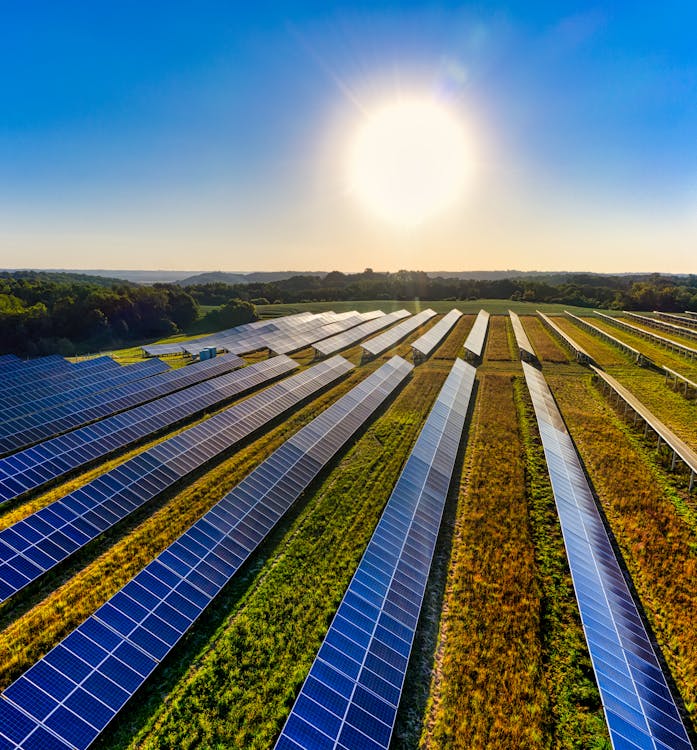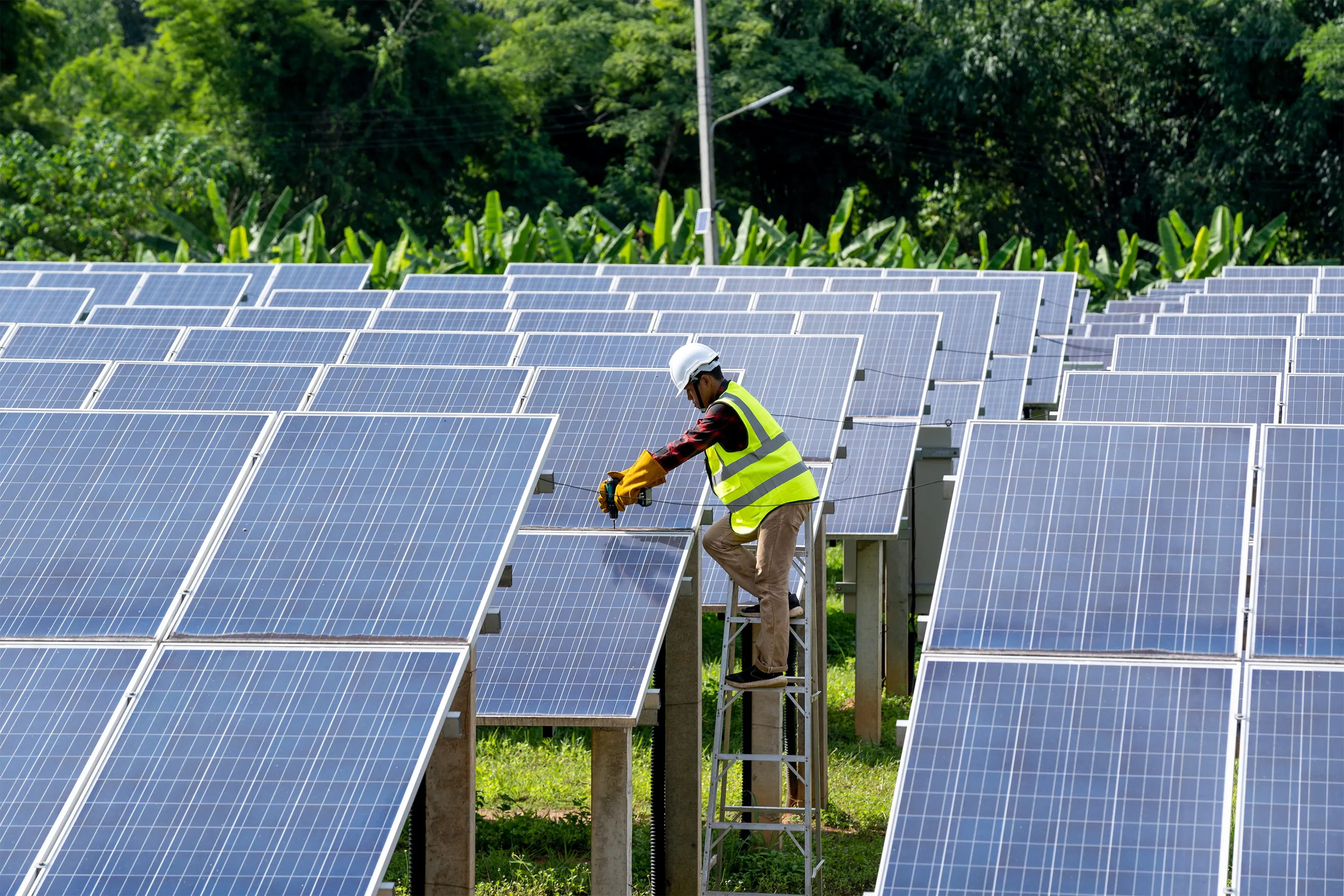The Buzz on Affordable Solar Panels Pa
The Buzz on Affordable Solar Panels Pa
Blog Article
Solar For New Construction PA: Our Firm Focuses On The Setup And Management Of Photovoltaic Energy Systems
History and Advancement of Solar Panel Business
The inception of solar panel business can be traced back to the 1800s when Alexandre Edmond Becquerel discovered the photovoltaic impact. Would he have envisioned how his discovery would change the method we harness energy?
Early Beginnings

In 1954, Bell Labs established the very first practical solar battery. This marked a considerable turning point in the history of solar power. They were at first used to power area satellites, however who understood this was simply the beginning?
Advancement and Development
- In the 1970s, an energy crisis resulted in increased interest in sustainable energy sources, including solar energy.
- By the 1990s, developments in technology and increasing environmental awareness led to the growth of solar panel business worldwide.
A New Era
As we entered the 21st century, the solar industry saw a rapid development. The demand for tidy and sustainable energy produced a new period in the solar panel industry.
Fascinating Facts
- The world's first solar energy station was built in 1982 in Hisperia, California.
- By 2019, solar power had become the world's fastest-growing source of power.
The journey of solar panel business has been remarkable, hasn't it? The future holds immense potential, with continuous advancements paving the method for a sustainable future. Can we visualize a world powered totally by solar energy?
Moving on
Today, photovoltaic panel companies continue to innovate, pursuing more efficient and cost-effective solutions. The advancement of solar power has come a long method, and yet, the journey has actually simply started.
The Core of Solar Panel Production
Ever wonder what goes into creating those glossy, sun-loving solar panels? The procedure is as excellent as the end product (Solar Installers Pennsylvania). High-purity silicon, the main ingredient in photovoltaic panels, goes through numerous changes to guarantee its effectiveness and durability
From Sand to Silicon
Crystalline silicon, the backbone of many photovoltaic panels, stems from simple sand. It's a remarkable journey, isn't it? The sand undergoes a high-temperature response with carbon to form silicon. However, this isn't just any silicon. The silicon used in solar panels is "solar-grade," with a pureness of 99.9999%. It's this pureness that enables the panels to efficiently convert sunshine into power.
Ingot Development
As soon as the silicon is pure enough, it's time to form ingots. Picture a big, cylindrical block of strong silicon. How is this achieved? Through a process called Czochralski process, where the silicon is melted and then slowly recrystallized. It's a sluggish dance of science, resulting in a strong product that is almost as pure as the raw silicon itself.
Slicing into Wafers
The ingots are then sliced into wafer-thin pieces, like slicing a loaf of bread. Each slice is a prospective solar cell, waiting to harness the power of the sun. Did you know that the here silicon wafers are only about 200 micrometers thick? That's about half the density of a human hair! The process requires accuracy and perseverance, but the result is a set of wafers ready to be turned into solar batteries.
Producing Solar Battery
With the wafer prepared, it's time for the magic to occur. The silicon wafer is 'doped' with other aspects like phosphorous and boron to produce an internal electric field. It's this field that makes it possible for the conversion of sunshine into electrical energy. Complex, isn't it?
Assembly and Quality Assurance
Solar battery resemble puzzle pieces that come together to form a photovoltaic panel. The cells are soldered together in a grid-like pattern, then covered with a protective layer of glass. The last action involves rigorous quality assurance checks. After all, it's essential that every photovoltaic panel performs at its peak, wouldn't you agree?
Insider Idea
Always keep in mind that even the most efficiently produced photovoltaic panel can lose efficiency due to dirt and debris accumulation. Regular cleansing can substantially enhance your panels' performance.
Understanding the Environmental Effect of Solar Panel Companies
Ever considered the ecological footprint of a photovoltaic panel company? Green technology, such as solar, has transformed our energy landscape, but what about the behind-the-scenes impact?
The Manufacturing Process: A Double-Edged Sword
The production procedure for solar panels requires a substantial amount of energy. This process, understood as 'em bodied energy', can be seen as a form of 'energy financial obligation'. It's a little like borrowing today's sunlight to power tomorrow's energy requirements. But fret not, the energy payback time is often shorter than you 'd believe!
- The energy payback period for photovoltaic panels is usually 1-4 years.
- After this period, the energy produced is basically carbon-free.

Life After Decommission
And what happens when a solar panel reaches completion of its lifespan? Can it just be tossed into the garbage? No, that wouldn't be very green, now, would it?
A viable option is recycling. While solar panel recycling is still in its infancy, it holds a world of capacity. Recycling not only keeps materials out of landfills however also reduces the requirement for brand-new raw products.
Responsible Sourcing: More Than A Buzzword
Where does the silicon come from, you ask? The market's need for silicon and rare minerals can lead to harmful mining practices. Accountable sourcing is for that reason crucial to reduce hazardous environmental impacts.
Lowered Carbon Emissions: The Bigger Photo
Let's not forget the bigger picture: solar energy significantly lowers carbon emissions. As soon as set up, photovoltaic panels create tidy, renewable resource, balancing out their initial manufacturing footprint.
In other copyright, the environmental impact of photovoltaic panel business is an intricate issue. Nevertheless, with responsible practices, the guarantee of a cleaner, greener future is well within our grasp.

Financial Efficiency and Market Share of Solar Panel Companies
Ever wondered why some photovoltaic panel business - Affordable Solar Panels PA beat others in the market? What sets them apart? The key lies in their monetary performance and market share
Financial Efficiency: A Crucial Indication
Financial performance plays a critical function in the success of any service. For photovoltaic panel business, it's no different. Strong monetary efficiency enables these business to purchase advanced innovation, research study, and advancement, consequently creating premium, efficient solar panels.
How do they accomplish this? With a focus on cost effectiveness and tactical financial investments. Business that handle to lower production expenses without compromising on quality tend to fare better in the market.
Market Share: A Measure of Success
Market share, on the other hand, is a direct reflection of a business's appeal amongst consumers. A high market share implies more homeowners are choosing their solar panels over rivals.
So, what's the secret dish for gaining a larger market share? It boils down to consumer fulfillment and brand name track record. Companies that prioritize customer requirements and preserve a positive brand image are most likely to capture a larger share of the market.
- Customer Fulfillment: Solar panel companies that provide trustworthy items and extraordinary client service tend to have greater client satisfaction rates.
- Brand Track record: A strong brand reputation is constructed with time through consistent delivery of quality items and services.
Financial Efficiency and Market Share: The Symbiotic Relationship
Surprisingly, the relationship in between financial efficiency and market share is not one-sided. They feed off each other. A strong monetary efficiency can increase a company's market share, while a high market share can improve monetary performance.
As a photovoltaic panel business, balancing these 2 aspects is vital for long-term success. A business that ignores either of them may find it hard to keep its position in the competitive solar industry.
The Takeaway
What does all this mean for you? Whether you're a homeowner looking to set up solar panels or an investor considering the solar industry, understanding the financial efficiency and market share of photovoltaic panel business is vital. They are key indications of a company's health and potential for future growth.
Report this page